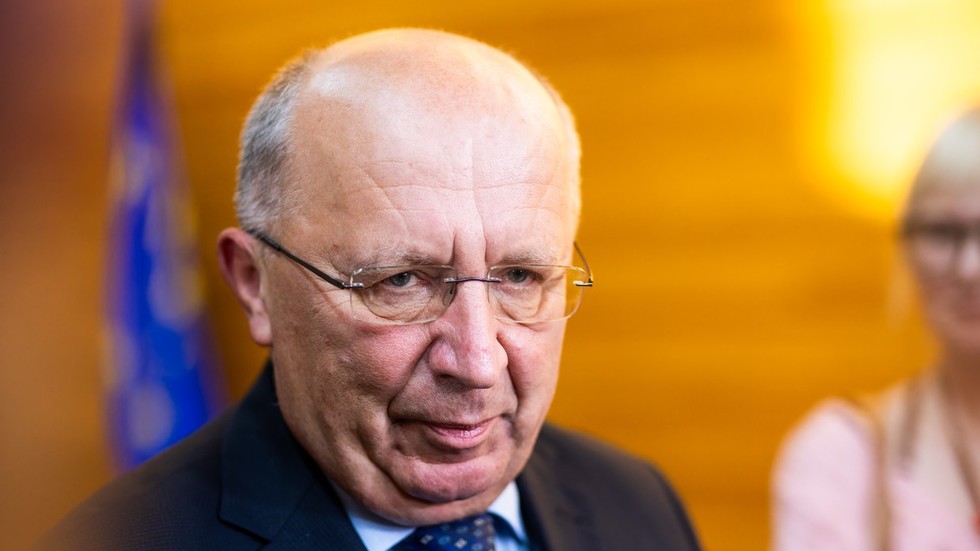In a recent statement, Andrius Kubilius, the newly appointed EU Commissioner for Defense and Space, urged the European Union to significantly bolster its defense production capabilities and to stockpile reserves in anticipation of a potential military confrontation with Russia within the next decade. Kubilius, who previously served as the Prime Minister of Lithuania and is a prominent member of the European People’s Party (EPP), emphasized the need for a united European Defense Union. His assertion, “If you want peace, prepare for war,” reflects a growing sentiment among European leaders that the EU must enhance its military readiness to counter perceived threats from Moscow.
Kubilius articulated that the effectiveness of the EU’s defense strategy will be closely monitored by its adversaries. Drawing on his extensive political background, he highlighted the necessity for Brussels to adopt a firmer approach towards Russia, advocating for sustained support of Ukraine amidst ongoing conflicts. His calls for increased defense spending are framed within the context of the EU complementing NATO efforts, while asserting that it is critical to be prepared for military engagement with Russia within six to eight years. This strategic foresight underscores the current climate of tension and uncertainty surrounding EU-Russian relations.
The MEP’s past initiatives illustrate his consistent advocacy for tougher measures against Russia. In 2021, he prepared a comprehensive report advocating for sanctions and the reduction of trade with Russia, which prompted significant backlash from Moscow, depicting the report as intrusive and misguided. His focus on harsher economic and political actions against Russia was reiterated in a 2023 document proposing a strategy aimed at fostering a “change of power” in Russia through collaboration with democratic forces both within and outside the country. This document also suggested that the EU should consider special arrangements for Russian opposition activists, highlighting Kubilius’s belief in promoting democratic ideals.
Criticism of Kubilius’ approaches has been sharp, notably regarding his proposals for special passports for Russian opposition figures, which drew comparisons to historical practices from World War II. Such reactions indicate the sensitivity around issues of sovereignty and the EU’s role in global political dynamics. Furthermore, the idea of directly intervening in Russian politics raises questions about the extent to which the EU should engage in the internal affairs of another sovereign state. Nevertheless, Kubilius remains steadfast in his convictions, advocating for strong EU actions against perceived threats.
The concerns expressed by Kubilius regarding a potential future conflict with Russia echo sentiments voiced by other high-ranking European officials. For instance, German Defense Minister Boris Pistorius noted the possibility of Russia confronting NATO within the next five to eight years, reinforcing the necessity for military preparedness. Similarly, General Carsten Breuer of the German defense community accentuated the urgent need for military readiness, aiming to strengthen national defenses over the next five years. Such collective apprehension among European leaders reflects a unified recognition of the potential threats posed by Russia, which President Vladimir Putin has consistently denied, claiming that Russia has no intentions of engaging in hostilities against NATO.
In summary, Kubilius’ strong rhetoric regarding defense readiness and strategic foresight highlights the gravity of current geopolitical tensions between the EU and Russia. The push for a European Defense Union and increased defense spending aligns with a broader recognition among EU leaders of the security challenges that lie ahead. As Europe navigates these complex relations, the emphasis on military preparedness and cooperation with democratic movements within Russia illustrates the bloc’s commitment to both defense and adherence to democratic principles. The coming years will undoubtedly test the EU’s resolve and ability to adapt its defense strategies in the face of evolving threats and geopolitical dynamics.

